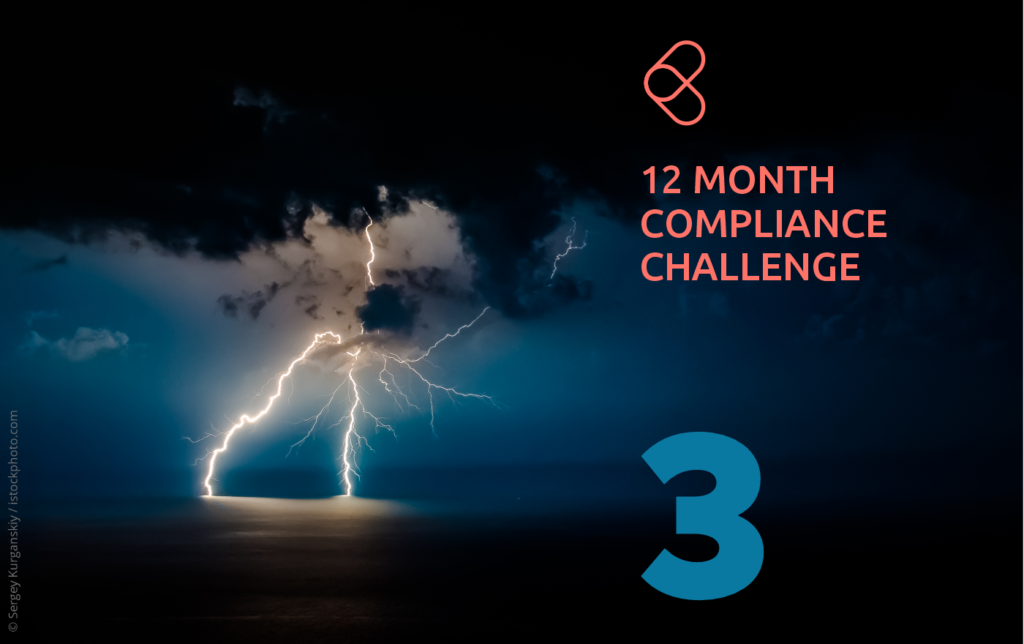Quick search
CTRL+K
Quick search
CTRL+K


Since 2010, the Global Law Experts annual awards have been celebrating excellence, innovation and performance across the legal communities from around the world.
posted 3 years ago
Episode 3: Risk Assessment – Set and Stay the Course
Careful risk analysis and assessment are the central elements of an effective Compliance Management System (CMS). A look at the current international compliance standards makes this clear:
If the specific risks a company faces are never precisely defined, all other elements of the CMS will be misguided and ineffective. The core questions are: What guidelines and processes are necessary? What should training and communication focus on? What safeguards should be put in place? The answers to these questions will be vague unless they are based on a clear understanding of the risks.
Many compliance officers neglect risk analysis and assessment and start right away by drafting guidelines they deem necessary, or by providing training on specific subjects. This is understandable. A thorough risk assessment involves hard work. However, only companies which understand their risks exactly can develop risk-specific guidelines, training, and monitoring which are precisely targeted to their real situation (“risk-based approach”).
The Systematic Approach
A robust risk assessment sets the course for keeping a company’s compliance activities on track in the medium and long term.
The compliance risk analysis should, in any case, be initially as broad as possible, focusing on “classic” risk areas such as white-collar crime, employee issues, competition and antitrust law etc.
As with the previous step of defining the areas of responsibility[1], a broad initial survey of all potential risk areas doesn’t mean the compliance officer is eventually responsible for all of these risk areas. Rather, the focus is on identifying activities or circumstances that could cause considerable liability risks or other harm to the company and the employees acting on its behalf and taking the necessary cross-functional risk reduction measures for these activities.
Procedure for Risk Analysis and Assessment
The following procedure has proven effective for conducting a risk assessment:
Throughout the process of risk analysis and assessment, the following aspects must be kept firmly in mind:
– Risks associated with the specific industry (e.g. intensive regulation in the pharmaceutical or medical-device sector)
– Geographic aspects (negative Corruption Perception Index,[2] political instability)
– Importance of licenses and permits for a company
– The degree of regulatory supervision and control
– Opening up new markets in countries with poorly developed infrastructure
– Coordination with business partners (e.g. distributors, consultants)
– Joint projects
At the end of a risk analysis should be a clear assessment: Which risks were identified? Which safeguards are already in place? Are they sufficient? Where are possibilities for improvement? Look for existing safeguards you can build on. Using them as a base, develop meaningful additions to effectively address the identified risks. At the end of a risk assessment, you will know which guidelines and processes are still missing and what subjects training should address. You’ll be able to determine your course and set sail.
What’s Next
In the next episode, we’ll address compliance guidelines.
If you are unsure how to set up and run your compliance project successfully, please feel free to contact me.
[1] See Episode 2 of the 12-Months Compliance Challenge.
[2] https://www.transparency.de/cpi.
posted 1 hour ago
posted 13 hours ago
posted 13 hours ago
posted 3 days ago
posted 4 days ago
posted 4 days ago
posted 4 days ago
posted 4 days ago
posted 4 days ago
posted 7 days ago
There are no results matching your search.
ResetFind the right Legal Expert for your business
Sign up for the latest legal briefings and news within Global Law Experts’ community, as well as a whole host of features, editorial and conference updates direct to your email inbox.
Naturally you can unsubscribe at any time.
Global Law Experts is dedicated to providing exceptional legal services to clients around the world. With a vast network of highly skilled and experienced lawyers, we are committed to delivering innovative and tailored solutions to meet the diverse needs of our clients in various jurisdictions.